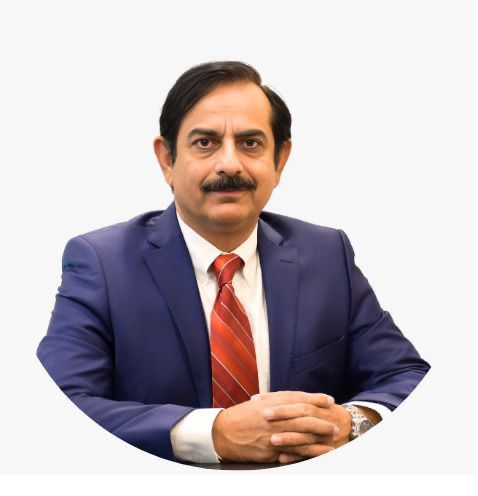By Imran Ghaznavi
In Pakistan’s increasingly polarized political landscape, the power to control the narrative now rivals the power to govern. When facts are buried under disinformation and public opinion is shaped by manipulation rather than dialogue, the foundations of democracy begin to erode. Nowhere was this more evident than in the events of May 9, 2023, a day that revealed how dangerous narrative warfare has become in our fragile democratic ecosystem.
That day did not unfold in a vacuum. It was the outcome of calculated misinformation, emotional incitement, and a deliberately constructed perception that legal accountability was somehow an assault on democracy. Instead of being a test of the rule of law, it was turned into a spectacle of victimhood, crafted to protect personal interests under the guise of popular will.
This was not politics. It was strategic chaos. And the cost of that chaos was borne by the nation.
What we witnessed resembled tactics used by hostile foreign actors, dismantling public trust, weakening institutions, and driving a wedge between the military and the people. Deepfake videos, incendiary hashtags, and doctored narratives intoxicated the national mood, transforming legitimate political debates into national emergencies.
Tragically, some section of the media either knowingly or due to editorial negligence became part of the problem. In their rush to be first, not right, some platforms broadcast unverified reports, amplified false claims, and indulged in the politics of provocation. Instead of challenging incitement, they became its echo chamber.
Let us be clear: this was not journalism. It was participation.
In times of crisis, the media is not just a source of information, it is a force that shapes perception, behavior, and national direction. When this force is misused, it does not merely mislead; it endangers. Political narratives that vilify institutions and mask personal gain as public interest are not just misleading they are destabilizing.
Pakistan is already fighting on many fronts, be it economic, diplomatic or ideological. It cannot afford to fight itself. The media, as a pillar of democracy, must recognize the gravity of this responsibility.
The consequences of such internal polarization are not merely political, they are economic and global. Investors flee uncertainty. Tourism evaporates under unrest. Markets become volatile. And young, skilled talent migrates to safer, more stable environments.
When headlines are filled with conflict instead of collaboration, when institutions are reacting instead of planning, national progress stalls. The cost of rebuilding lost trust both domestically and internationally is far greater than the effort required to protect it through responsible, mature discourse.
In this high-stakes environment, media must evolve from amplifiers of noise to protectors of national sanity. Journalism is not about choosing sides; it is about telling the truth. It’s about contextualizing complexity not feeding emotional oversimplifications.
Responsible media must commit to five core principles:
1. Verification before Amplification: Every report, quote, or tweet must be fact-checked. In a digital age, speed must not come at the cost of accuracy.
2. Expose Narrative Engineering: Investigative journalism must uncover how narratives are weaponized to blur accountability and repackage personal agendas as national causes.
3. Context over Sensationalism: Media must move beyond “good vs. evil” framing. Present the constitutional, legal, and institutional realities. Inform don’t inflame.
4. Editorial Patriotism, Not Censorship: When content has the potential to incite violence or serve hostile propaganda, media must exercise restraint. This is not about silencing voices, it’s about protecting peace.
5. Invest in Media Literacy: A media-literate population is Pakistan’s best defense against disinformation. Citizens must be equipped to recognize manipulation and resist psychological warfare.
We’ve seen what responsible journalism can achieve. During the 2022 floods, media outlets united for humanitarian causes broadcasting appeals, sharing logistics, and building momentum for relief. During the recent Pakistan-India tensions, Pakistani media projected national unity, diplomatic maturity, and strategic clarity.
In the face of aggression and misinformation from Indian outlets, Pakistan’s public and private media responded with composure and consistency. Fact-based reporting, coordinated messaging, and adherence to international norms helped build credibility abroad and unity at home.
That is the media we need. That is the media Pakistan deserves.
Political differences are the heartbeat of any democracy. But exploiting them to stoke enmity, undermine institutions, and fracture national morale is dangerous. In a country as resilient and yet as vulnerable as Pakistan, unity is not optional. It is an existential imperative.
The media now faces a critical choice:
To inflame or to inform.
To divide or to connect.
To become complicit in the politics of national divide or to stand firm as guardians of peace, truth, and national unity.
In the end, nations are built not just on policies, but on stories. And it is the solemn duty of journalists, editors, and media owners to ensure those stories heal rather than hurt, clarify rather than confuse, unite rather than divide.
Because without responsible media, there can be no unity.
And without unity, there can be no progress.
About the Author
Imran Ghaznavi is a strategic communication expert and author of “Reputation Management and Crisis Communication: A Study of the Corporate Sector.” He has held leadership roles in media regulation, public policy, and crisis communication strategy in Pakistan.

















